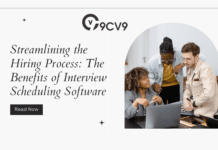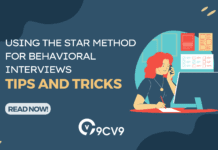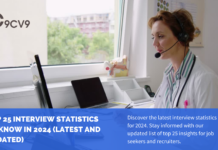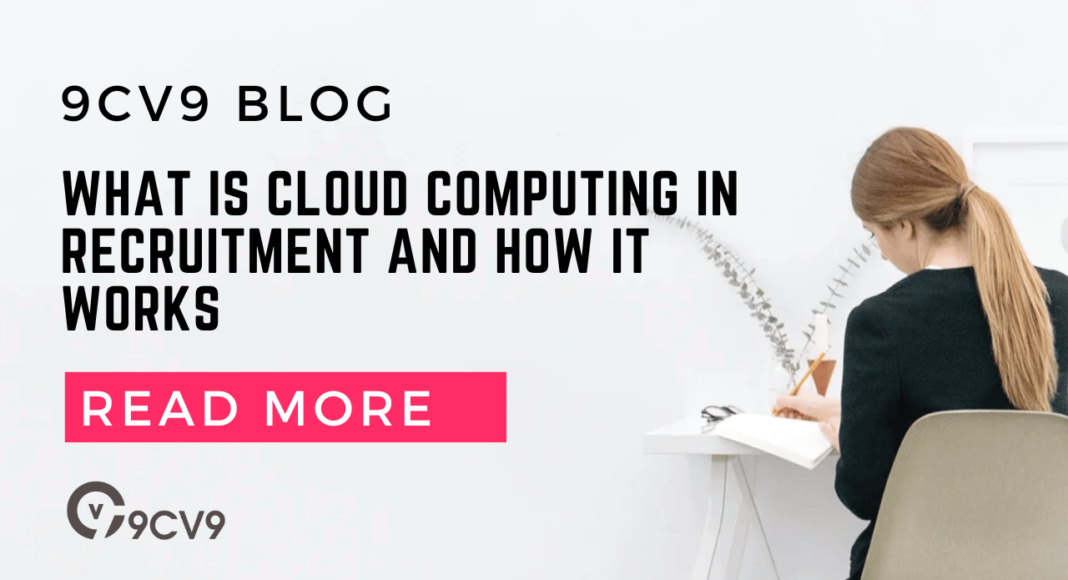Key Takeaways
- Enhanced Efficiency: Cloud computing streamlines recruitment processes by automating tasks such as resume parsing, interview scheduling, and candidate tracking, leading to faster and more efficient hiring.
- Cost-Effective Scalability: Adopting cloud-based recruitment solutions offers cost savings and scalability, allowing organizations to adjust resources based on hiring needs without substantial upfront investments.
- Future-Ready Recruitment: Embracing cloud computing keeps recruitment strategies future-proof with trends like AI-driven candidate matching, mobile recruitment solutions, and enhanced data security, ensuring a competitive edge in talent acquisition.
In today’s fast-paced digital world, the recruitment landscape is undergoing a significant transformation. Traditional recruitment methods are increasingly being replaced by innovative technologies designed to streamline processes and enhance efficiency.
One of the most transformative technologies reshaping recruitment is cloud computing. But what exactly is cloud computing, and how does it work within the recruitment sector?
Cloud computing refers to the delivery of computing services over the internet, commonly known as “the cloud.”
These services include storage, processing power, and applications, which are hosted on remote servers rather than on local machines or on-premises data centers.
The cloud offers a flexible, scalable, and cost-effective solution for managing vast amounts of data and running applications seamlessly.
In the context of recruitment, cloud computing brings a myriad of benefits that address the complexities and challenges faced by modern HR departments.
It enables recruiters to leverage advanced tools and platforms that enhance the entire hiring process, from posting job vacancies to onboarding new hires.
The integration of cloud computing in recruitment is not just a trend; it’s a strategic shift that empowers organizations to be more agile, data-driven, and collaborative.
The Importance of Cloud Computing in Recruitment
The recruitment industry is heavily data-centric.
Handling large volumes of applications, managing candidate information, and coordinating with various stakeholders require robust and efficient systems.
Cloud computing addresses these needs by providing scalable solutions that can handle varying loads with ease.
This flexibility is crucial in recruitment, where the demand for resources can fluctuate significantly depending on hiring cycles.
Moreover, cloud-based recruitment systems offer unparalleled accessibility. Recruiters can access the system from anywhere, at any time, using any device with internet connectivity.
This is particularly beneficial in today’s increasingly remote and hybrid work environments. It allows HR teams to continue their operations seamlessly without being tied to a physical office.
Cost efficiency is another significant advantage.
Traditional recruitment systems often require substantial upfront investments in hardware and software, along with ongoing maintenance costs.
Cloud computing, on the other hand, operates on a pay-as-you-go model, which means organizations only pay for the resources they use.
This can result in substantial cost savings, especially for small to medium-sized enterprises that may not have extensive IT budgets.
Enhancing Collaboration and Efficiency
Cloud computing also fosters better collaboration among HR teams.
With centralized cloud-based platforms, team members can easily share information, track progress, and coordinate their efforts in real-time.
This collaborative environment can lead to faster decision-making and more cohesive hiring strategies.
Security and compliance are critical concerns in recruitment, given the sensitive nature of candidate data.
Cloud service providers invest heavily in security measures to protect data against breaches and ensure compliance with industry standards and regulations.
This can give organizations peace of mind, knowing that their data is secure and managed in accordance with best practices.
Transformative Tools and Technologies
The integration of cloud computing in recruitment is further enhanced by various tools and technologies that leverage the power of the cloud.
Cloud-based Applicant Tracking Systems (ATS) streamline the recruitment process by automating tasks such as resume screening, interview scheduling, and candidate communication.
These systems not only save time but also improve the candidate experience by providing timely updates and feedback.
Analytics and reporting tools available in cloud-based systems offer valuable insights into recruitment metrics and performance.
Recruiters can access real-time data to make informed decisions, identify trends, and optimize their strategies.
This data-driven approach can lead to better hiring outcomes and a more effective recruitment process.
Embracing the Future of Recruitment
As the recruitment industry continues to evolve, the adoption of cloud computing is set to grow even further.
Future trends such as the integration of artificial intelligence (AI) and machine learning will likely enhance the capabilities of cloud-based recruitment systems, offering predictive analytics, advanced candidate matching, and more efficient workflow automation.
In summary, cloud computing is revolutionizing the recruitment industry by providing scalable, cost-effective, and innovative solutions.
It enhances accessibility, collaboration, security, and efficiency, making it an indispensable tool for modern HR departments. Embracing cloud computing in recruitment not only addresses current challenges but also positions organizations for future success in an increasingly competitive talent market.
Before we venture further into this article, we like to share who we are and what we do.
About 9cv9
9cv9 is a business tech startup based in Singapore and Asia with a strong presence all over the world.
With over eight years of startup and business experience, and being highly involved in connecting with thousands of companies and startups, the 9cv9 team has listed some important learning points in this overview of What is Cloud Computing in Recruitment and How It Works.
If your company needs recruitment and headhunting services to hire top SEO employees, you can use 9cv9 headhunting and recruitment services to hire top talents and candidates. Find out more here, or send over an email to [email protected].
Or just post 1 free job posting here at 9cv9 Hiring Portal in under 10 minutes.
What is Cloud Computing in Recruitment and How It Works
- Understanding Cloud Computing in Recruitment
- Benefits of Cloud Computing in Recruitment
- How Cloud Computing Works in Recruitment
- Future Trends in Cloud Computing for Recruitment
1. Understanding Cloud Computing in Recruitment
Cloud computing has become a cornerstone of modern recruitment practices, transforming how organizations manage their hiring processes.
This section will delve into the key aspects of cloud computing in recruitment, breaking down its components, benefits, and practical applications.

Definition of Cloud Computing in Recruitment
- Cloud Computing Overview
- Delivery of computing services such as storage, processing power, and software over the internet.
- Eliminates the need for local servers or personal devices to handle applications.
- Specific Application in Recruitment
- Use of cloud-based platforms to manage recruitment processes.
- Enables remote access to recruitment tools and data from any internet-connected device.
Types of Cloud Services Used in Recruitment
- Software as a Service (SaaS)
- Provides access to software applications over the internet on a subscription basis.
- Examples: LinkedIn Talent Solutions, Greenhouse, and Workday.
- Benefits: Easy to scale, regular updates, and minimal IT maintenance.
- Platform as a Service (PaaS)
- Offers a platform allowing customers to develop, run, and manage applications without dealing with the underlying infrastructure.
- Used for building custom recruitment tools and applications.
- Infrastructure as a Service (IaaS)
- Provides virtualized computing resources over the internet.
- Examples: Amazon Web Services (AWS), Microsoft Azure, and Google Cloud Platform.
- Benefits: High scalability and flexibility, cost-efficient for handling large volumes of recruitment data.

Benefits of Cloud Computing in Recruitment
- Cost Efficiency
- Reduction in upfront infrastructure costs.
- Pay-as-you-go pricing models.
- According to a study, 94% of companies reported cost savings after adopting cloud services.
- Scalability and Flexibility
- Easy to scale resources up or down based on recruitment needs.
- Customizable to fit specific recruitment workflows.
- Gartner predicts that by 2025, 80% of enterprises will have shut down their traditional data centers in favor of cloud solutions.
- Accessibility and Collaboration
- Remote access for recruiters and candidates, enhancing flexibility.
- Improved collaboration among HR teams across different locations.
- A study by McKinsey found that 72% of companies that use cloud collaboration tools report increased productivity.
- Data Security and Compliance
- Secure storage and data protection with advanced encryption and security measures.
- Compliance with legal and industry standards such as GDPR and HIPAA.
How Cloud Computing Works in Recruitment
- Cloud-based Applicant Tracking Systems (ATS)
- Features: Resume parsing, candidate tracking, interview scheduling, and communication management.
- Examples: Lever, Jobvite, and iCIMS.
- Benefits: Enhanced efficiency, reduced manual workload, and improved candidate experience.
- Resume Parsing and Data Management
- Automated extraction of candidate information from resumes.
- Efficient organization and retrieval of candidate data.
- Collaborative Tools and Platforms
- Examples: Slack, Microsoft Teams, and Google Workspace.
- Facilitates real-time communication and collaboration among HR team members.
- Allows for seamless sharing of candidate information and recruitment status updates.
- Analytics and Reporting
- Real-time analytics to monitor recruitment performance and metrics.
- Customizable reporting features to track KPIs such as time-to-hire, cost-per-hire, and source of hire.
- According to a report, 77% of talent professionals believe data-driven recruiting improves hiring success.
Summary
Understanding the role of cloud computing in recruitment is crucial for organizations looking to enhance their hiring processes.
By leveraging cloud-based solutions, companies can achieve greater efficiency, flexibility, and cost savings, while also improving collaboration and data security.
2. Benefits of Cloud Computing in Recruitment
Cloud computing has revolutionized various industries, and recruitment is no exception.
By leveraging cloud-based technologies, organizations can significantly enhance their recruitment processes.
This section explores the multifaceted benefits of cloud computing in recruitment, supported by relevant examples, data, and statistics.

Cost Efficiency
- Reduction in Upfront Costs
- Eliminates the need for physical infrastructure and hardware.
- Example: A small recruitment agency using a cloud-based ATS saves on costs related to servers and maintenance.
- Data: According to a study, businesses that migrate to the cloud save an average of 15-20% on IT costs.
- Pay-as-You-Go Pricing Models
- Organizations only pay for the resources they use, avoiding unnecessary expenses.
- Example: Startups can scale their cloud services as they grow, preventing large initial investments.
- Data: A study reports that 20% – 35% of companies have realized cost savings by adopting cloud services.
- Reduced Maintenance Costs
- Cloud service providers handle maintenance, updates, and security patches.
- Example: A mid-sized company no longer needs a dedicated IT team for recruitment software maintenance.
- Data: Research found that companies see an average annual ROI of 1.7 times their cloud investment.
Scalability and Flexibility
- Dynamic Resource Allocation
- Easily scale up or down based on recruitment needs.
- Example: A retail company can increase cloud resources during peak hiring seasons and scale down afterward.
- Data: Gartner predicts that by 2025, 80% of enterprises will shut down traditional data centers in favor of cloud solutions due to scalability benefits.
- Customizable Solutions
- Tailor cloud services to specific recruitment workflows and needs.
- Example: A tech company customizes its cloud-based ATS to include specific skill assessments for candidates.
Accessibility and Collaboration
- Remote Access
- Recruiters and candidates can access the system from anywhere, enhancing flexibility.
- Example: A global company allows its HR team to work from different locations seamlessly using a cloud-based recruitment platform.
- Data: A study reports that companies using cloud-based collaboration tools have seen a 72% increase in productivity.
- Improved Collaboration
- Enhanced teamwork and communication through centralized platforms.
- Example: An HR team uses cloud-based tools like Slack and Google Workspace to coordinate recruitment efforts in real time.
- Data: According to a survey, 77% of businesses feel cloud technology gives them a competitive advantage.
Data Security and Compliance
- Advanced Security Measures
- Cloud providers offer robust security features, including encryption and multi-factor authentication.
- Example: A financial services firm relies on a cloud provider’s security protocols to protect sensitive candidate data.
- Compliance with Regulations
- Ensure adherence to legal and industry standards such as GDPR and HIPAA.
- Example: A healthcare organization uses a cloud-based ATS that complies with HIPAA to securely manage candidate information.
Enhanced Efficiency and Productivity
- Automation of Routine Tasks
- Automate tasks such as resume screening, interview scheduling, and candidate communication.
- Example: A recruitment agency uses AI-powered cloud tools to automatically filter resumes and schedule interviews, reducing manual workload.
- Faster Decision-Making
- Real-time access to data and analytics facilitates quicker and more informed decisions.
- Example: A multinational corporation uses cloud-based analytics to track recruitment metrics and make data-driven hiring decisions.
- Data: A report states that 77% of talent professionals believe data-driven recruiting improves hiring success.
Improved Candidate Experience
- Streamlined Application Processes
- Simplifies the application process for candidates, improving their experience.
- Example: A tech firm uses a cloud-based application portal that allows candidates to track their application status in real time.
- Data: A study reports that a positive candidate experience increases the likelihood of accepting a job offer by 80%.
- Timely Communication
- Provides timely updates and feedback to candidates, enhancing their engagement.
- Example: An e-commerce company uses cloud-based communication tools to keep candidates informed throughout the hiring process.
- Data: According to a study, 47% of candidates say timely communication is the most important factor in a positive recruitment experience.
Summary
The benefits of cloud computing in recruitment are extensive and transformative.
By providing cost efficiency, scalability, accessibility, enhanced security, and improved candidate experience, cloud-based solutions empower organizations to optimize their recruitment processes.
As demonstrated by real-world examples and supported by robust data, cloud computing stands as a critical tool for modernizing and enhancing the recruitment function, ensuring that organizations can attract, engage, and hire the best talent effectively and efficiently.
3. How Cloud Computing Works in Recruitment
Cloud computing has revolutionized the recruitment industry by providing powerful tools and technologies that streamline the hiring process, enhance collaboration, and improve data management.
This section will explore the mechanics of cloud computing in recruitment, offering detailed insights, relevant examples, and supporting data to illustrate its impact.

Cloud-based Applicant Tracking Systems (ATS)
- Features and Functionalities
- Resume Parsing: Automatically extracts candidate information from resumes and organizes it into a structured format.
- Candidate Tracking: Tracks applicants through various stages of the recruitment process, from initial application to final hiring decision.
- Interview Scheduling: Facilitates automated scheduling of interviews, reducing manual coordination efforts.
- Communication Management: Manages all candidate communications, ensuring timely and consistent updates.
- Examples of Cloud-based ATS
- Greenhouse: Offers advanced reporting and analytics, customizable interview kits, and seamless integration with other HR tools.
- Jobvite: Provides end-to-end recruiting solutions, including employee referrals, applicant tracking, and onboarding.
- Lever: Combines applicant tracking with CRM capabilities, allowing for proactive candidate relationship management.
- Benefits Over Traditional ATS
- Efficiency: Automates repetitive tasks, freeing up recruiters to focus on strategic activities.
- Scalability: Easily scales to accommodate fluctuations in hiring volume.
- Accessibility: Enables access from any device with internet connectivity, supporting remote and distributed teams.
- Data and Statistics
- According to a study, 75% of recruiters and talent managers use some form of applicant tracking system.
Resume Parsing and Data Management
- Automated Resume Parsing
- How It Works: Uses natural language processing (NLP) and machine learning algorithms to extract relevant data from resumes, such as contact information, work experience, education, and skills.
- Example: Hiretual’s AI-powered resume parser can analyze thousands of resumes in minutes, identifying the best matches for a job posting.
- Efficient Data Management and Retrieval
- Centralized Database: Stores candidate information in a centralized, cloud-based database, making it easy to search, filter, and retrieve data.
- Data Integration: Integrates with other HR systems and tools, ensuring seamless data flow and consistency.
- Benefits
- Speed: Significantly reduces the time spent on manual data entry and resume screening.
- Accuracy: Minimizes errors and ensures consistency in data handling.
Collaborative Tools and Platforms
- Cloud-based Collaboration Tools
- Slack: Enables real-time messaging, file sharing, and integration with other HR tools, facilitating seamless communication among recruitment teams.
- Microsoft Teams: Offers video conferencing, collaborative document editing, and integration with Microsoft Office suite.
- Google Workspace: Provides cloud-based tools for email, document creation, and real-time collaboration.
- How They Facilitate Teamwork and Communication
- Real-time Updates: Team members can share updates instantly, ensuring everyone is on the same page.
- Centralized Communication: Consolidates all recruitment-related communications in one place, reducing the risk of miscommunication.
- Benefits
- Enhanced Collaboration: Improves coordination and teamwork among geographically dispersed HR teams.
- Increased Productivity: Streamlines communication and reduces the time spent on email and meetings.
- Data and Statistics
- Microsoft reports that organizations using Teams for collaboration saw a 19% increase in productivity.
Analytics and Reporting
- Real-time Analytics
- Recruitment Metrics: Tracks key performance indicators (KPIs) such as time-to-hire, cost-per-hire, and source of hire.
- Example: LinkedIn Talent Insights provides real-time data on hiring trends, talent availability, and competitive analysis.
- Customizable Reporting Features
- Dashboard Customization: Allows HR teams to create customized dashboards displaying the most relevant metrics for their needs.
- Automated Reports: Generates reports automatically at specified intervals, providing consistent and up-to-date insights.
- Benefits
- Data-driven Decisions: Empowers recruiters to make informed decisions based on real-time data.
- Process Optimization: Identifies bottlenecks and inefficiencies in the recruitment process, enabling continuous improvement.
- Data and Statistics
Summary
Cloud computing has fundamentally changed the recruitment landscape by providing scalable, efficient, and collaborative solutions.
From cloud-based ATS and automated resume parsing to real-time analytics and enhanced collaboration tools, the benefits are extensive.
Supported by real-world examples and robust data, it is clear that cloud computing enables organizations to streamline their recruitment processes, improve decision-making, and ultimately attract and hire top talent more effectively and efficiently.
As the recruitment industry continues to evolve, leveraging cloud computing will remain essential for staying competitive and achieving long-term success.
4. Future Trends in Cloud Computing for Recruitment
As technology continues to evolve, the recruitment industry is poised to experience significant transformations driven by advancements in cloud computing.
This section explores the future trends in cloud computing for recruitment, highlighting the emerging technologies and practices that will shape the hiring landscape.
Integration of Artificial Intelligence and Machine Learning
- Predictive Analytics and Candidate Matching
- How It Works: Uses historical data and algorithms to predict candidate success and match candidates to roles more accurately.
- Example: Companies like Pymetrics use AI to assess candidates’ soft skills through gamified assessments, matching them with job roles based on their behavioral traits.
- Automating Routine Tasks
- Examples of Automation: Resume screening, interview scheduling, and initial candidate outreach.
- Example: Mya, an AI-powered recruiting assistant, automates candidate engagement through chatbots, freeing up recruiters to focus on strategic tasks.
- Data: A survey found that 35% of companies are already using AI in their recruitment process.
Enhanced Security Measures
- Advanced Data Encryption and Privacy Protection
- How It Works: Utilizes sophisticated encryption techniques to secure candidate data and ensure privacy compliance.
- Example: Cloud service providers like AWS and Microsoft Azure offer advanced security features such as end-to-end encryption and compliance with regulations like GDPR and CCPA.
- Data: A study reports that 94% of businesses using cloud services have seen improvements in data security.
- AI and Machine Learning in Security
- Use of AI: AI algorithms detect and respond to security threats in real-time, reducing the risk of data breaches.
- Example: Darktrace uses AI to detect anomalies in network traffic, providing early warnings of potential security incidents.
Mobile Recruitment Solutions
- Mobile-first Recruitment Strategies
- How It Works: Develops recruitment processes and tools optimized for mobile devices, catering to the increasing number of mobile job seekers.
- Example: LinkedIn Mobile App allows recruiters to manage job postings, view candidate profiles, and communicate with applicants on-the-go.
- Data: Glassdoor reports that 58% of job seekers use their smartphones to search for job openings.
- Mobile-friendly Application Processes
- Features: Simplified application forms, mobile-optimized career sites, and easy resume uploads from cloud storage.
- Example: Jobvite’s mobile hiring team app lets recruiters review candidates, schedule interviews, and provide feedback directly from their smartphones.
- Data: According to a study, around 50% of millennials use their mobile devices for job hunting, emphasizing the need for mobile-friendly recruitment solutions.
Expansion of Remote Work and Virtual Hiring
- Virtual Recruitment Events and Job Fairs
- How It Works: Hosts recruitment events online, allowing candidates to interact with recruiters and learn about job opportunities from anywhere.
- Example: Brazen provides a platform for virtual career fairs, enabling organizations to reach a wider pool of candidates.
- Data: Forbes predicts that, 50% of the workforce will be working remotely, necessitating virtual hiring solutions.
- Remote Onboarding and Training
- Tools and Technologies: Cloud-based onboarding platforms and e-learning systems that facilitate remote employee training.
- Example: BambooHR offers a cloud-based onboarding solution that helps new hires complete paperwork, access company resources, and connect with their team remotely.
Data-driven Recruitment
- Advanced Analytics and Reporting
- How It Works: Leverages big data and analytics to gain insights into recruitment metrics, trends, and performance.
- Example: IBM’s Kenexa Talent Acquisition Suite uses analytics to provide insights into candidate sourcing, hiring trends, and process bottlenecks.
- Real-time Performance Tracking
- Benefits: Provides instant feedback on recruitment campaigns, allowing for quick adjustments and optimizations.
- Example: Google Analytics integrated with career sites helps track candidate behavior and measure the effectiveness of recruitment marketing efforts.
Adoption of Blockchain Technology
- Verifiable Credentials and Secure Data Sharing
- How It Works: Uses blockchain to verify candidates’ credentials and share secure, tamper-proof records.
- Example: The Velocity Network Foundation is developing a blockchain-based platform for verifying and sharing employment and education records.
- Data: According to a study, blockchain technology could increase transparency and reduce fraud in recruitment, potentially saving the industry billions of dollars annually.
- Smart Contracts for Employment Agreements
- Benefits: Automates contract execution, ensuring compliance and reducing administrative burden.
- Example: Smart contracts can automate the signing of employment agreements, triggering onboarding processes once conditions are met.
- Data: Gartner forecasts that by 2025, blockchain will add $3.1 trillion in business value, significantly impacting various sectors, including HR and recruitment.
Summary
The future of cloud computing in recruitment is marked by innovative technologies and practices that promise to enhance efficiency, security, and candidate experience.
From AI and machine learning to mobile recruitment solutions and blockchain technology, these trends will redefine how organizations attract, engage, and hire talent.
By staying abreast of these developments and integrating them into their recruitment strategies, organizations can remain competitive and achieve long-term success in an ever-evolving job market.
Conclusion
Cloud computing has profoundly transformed the recruitment landscape, offering a myriad of benefits that enhance efficiency, collaboration, and overall effectiveness in hiring processes.
This technology has redefined traditional recruitment methods, providing organizations with innovative tools and solutions to attract, engage, and retain top talent.
In this comprehensive exploration of cloud computing in recruitment, we have delved into its definition, working mechanisms, benefits, and future trends, underscoring its critical role in modern talent acquisition strategies.
Recap of Cloud Computing in Recruitment
Cloud computing in recruitment involves leveraging internet-based computing services to manage and streamline hiring processes.
By utilizing cloud-based platforms, organizations can access powerful tools and applications without the need for extensive on-premises infrastructure.
This technology encompasses various services such as Software as a Service (SaaS), Platform as a Service (PaaS), and Infrastructure as a Service (IaaS), each providing unique advantages tailored to different recruitment needs.
Key Benefits Revisited
- Cost Efficiency
- Cloud computing eliminates the need for substantial upfront investments in hardware and software. Organizations can adopt a pay-as-you-go model, ensuring they only pay for the resources they use. This model not only reduces costs but also allows for better budget management.
- Scalability and Flexibility
- The scalability of cloud services allows recruitment teams to adjust resources based on fluctuating hiring needs. Whether scaling up during peak hiring seasons or down during quieter periods, cloud computing ensures that recruitment processes remain efficient and cost-effective.
- Accessibility and Collaboration
- Cloud-based recruitment platforms enable remote access, allowing HR teams to work from anywhere with an internet connection. This flexibility is crucial in today’s increasingly remote work environment. Enhanced collaboration tools also facilitate seamless communication and coordination among team members, leading to improved productivity.
- Data Security and Compliance
- Advanced security measures provided by cloud service providers, such as encryption and multi-factor authentication, ensure that sensitive candidate data is protected. Compliance with regulations like GDPR and HIPAA is easier to achieve, mitigating risks associated with data breaches and legal issues.
- Enhanced Efficiency and Productivity
- Automation of routine tasks such as resume parsing, interview scheduling, and candidate communication significantly reduces manual workload. This allows recruiters to focus on strategic activities, such as candidate engagement and talent sourcing, thereby enhancing overall productivity.
- Improved Candidate Experience
- Cloud computing simplifies the application process, provides timely communication, and ensures a smoother onboarding experience. A positive candidate experience not only improves the chances of securing top talent but also enhances the organization’s reputation in the job market.
Future Trends in Cloud Computing for Recruitment
Looking ahead, several emerging trends in cloud computing are set to further revolutionize recruitment practices:
- Artificial Intelligence and Machine Learning
- AI and ML are becoming integral to recruitment, offering predictive analytics, candidate matching, and automation of repetitive tasks. These technologies enhance decision-making and reduce time-to-hire.
- Enhanced Security Measures
- As cyber threats become more sophisticated, the adoption of advanced security technologies, including AI-driven threat detection and blockchain for verifiable credentials, will be crucial in protecting candidate data.
- Mobile Recruitment Solutions
- With the increasing use of smartphones for job searching, mobile-first recruitment strategies and mobile-friendly application processes will become standard, catering to the needs of tech-savvy candidates.
- Expansion of Remote Work and Virtual Hiring
- The shift towards remote work is driving the adoption of virtual recruitment events, remote onboarding, and training solutions, making it easier to hire and integrate remote employees.
- Data-driven Recruitment
- Advanced analytics and real-time performance tracking will enable recruiters to make data-driven decisions, optimize recruitment processes, and achieve better hiring outcomes.
- Blockchain Technology
- Blockchain offers secure and transparent methods for verifying credentials and automating employment agreements through smart contracts, enhancing trust and efficiency in the recruitment process.
Final Thoughts
The integration of cloud computing into recruitment processes is not merely a trend but a fundamental shift that is reshaping how organizations attract and manage talent.
By embracing cloud-based technologies, businesses can achieve significant improvements in efficiency, cost savings, and candidate experience.
Furthermore, staying updated with future trends will ensure that organizations remain competitive and innovative in their recruitment strategies.
As the recruitment landscape continues to evolve, cloud computing stands as a cornerstone for modern HR practices.
It empowers organizations to leverage advanced technologies, streamline processes, and make informed, data-driven decisions.
By understanding and harnessing the power of cloud computing, businesses can build a robust, agile, and future-proof recruitment framework that drives success in today’s dynamic job market.
In conclusion, the adoption of cloud computing in recruitment is no longer optional but essential.
Organizations that invest in cloud-based solutions will not only enhance their recruitment efficiency but also gain a competitive edge in attracting and retaining top talent.
The future of recruitment is undeniably cloud-driven, and embracing this transformation will pave the way for sustained growth and success.
If your company needs HR, hiring, or corporate services, you can use 9cv9 hiring and recruitment services. Book a consultation slot here, or send over an email to [email protected].
If you find this article useful, why not share it with your hiring manager and C-level suite friends and also leave a nice comment below?
We, at the 9cv9 Research Team, strive to bring the latest and most meaningful data, guides, and statistics to your doorstep.
To get access to top-quality guides, click over to 9cv9 Blog.
People Also Ask
What is cloud computing in recruitment?
Cloud computing in recruitment involves using internet-based services to manage and streamline hiring processes, offering tools for data storage, processing, and collaboration.
How does cloud computing work in recruitment?
Cloud computing works in recruitment by providing scalable and accessible platforms for managing job applications, candidate data, and communication through the internet.
What are the benefits of using cloud computing in recruitment?
Benefits include cost savings, scalability, enhanced collaboration, improved data security, automation of tasks, and better candidate experiences.
What is a cloud-based Applicant Tracking System (ATS)?
A cloud-based ATS is a software application that helps recruiters track and manage job applications and candidates using cloud technology, ensuring accessibility and scalability.
How does cloud computing improve candidate experience?
Cloud computing improves candidate experience by streamlining application processes, providing timely updates, and facilitating seamless communication and onboarding.
Can cloud computing reduce recruitment costs?
Yes, cloud computing reduces recruitment costs by eliminating the need for expensive on-premises infrastructure and adopting a pay-as-you-go model.
How does AI enhance cloud-based recruitment?
AI enhances cloud-based recruitment by automating tasks like resume screening, candidate matching, and communication, leading to faster and more accurate hiring decisions.
What security measures do cloud recruitment platforms offer?
Cloud recruitment platforms offer advanced security measures such as encryption, multi-factor authentication, and compliance with data protection regulations like GDPR and CCPA.
How scalable are cloud-based recruitment solutions?
Cloud-based recruitment solutions are highly scalable, allowing organizations to adjust resources and functionalities according to changing hiring needs.
What are some popular cloud-based recruitment tools?
Popular cloud-based recruitment tools include Greenhouse, Jobvite, Lever, BambooHR, and Workday.
How does cloud computing facilitate remote recruitment?
Cloud computing facilitates remote recruitment by providing tools for virtual interviews, collaboration, and access to candidate data from anywhere with an internet connection.
What are the future trends in cloud computing for recruitment?
Future trends include AI and machine learning integration, mobile recruitment solutions, enhanced security measures, data-driven recruitment, and blockchain technology for verifiable credentials.
How does cloud-based recruitment improve collaboration?
Cloud-based recruitment improves collaboration by enabling real-time communication, document sharing, and project management across geographically dispersed teams.
What is resume parsing in cloud recruitment?
Resume parsing is the automated process of extracting and organizing candidate information from resumes using natural language processing and machine learning.
Can cloud computing help with data-driven recruitment decisions?
Yes, cloud computing helps with data-driven recruitment decisions by providing real-time analytics, customizable reporting, and insights into recruitment metrics and trends.
How does cloud technology enhance data security in recruitment?
Cloud technology enhances data security by implementing robust encryption, access controls, and compliance with legal and regulatory requirements.
What role does blockchain play in cloud recruitment?
Blockchain in cloud recruitment provides secure, tamper-proof verification of candidate credentials and automates employment agreements through smart contracts.
How does mobile recruitment benefit from cloud computing?
Mobile recruitment benefits from cloud computing by offering mobile-optimized application processes, real-time updates, and access to recruitment tools on smartphones and tablets.
What is the impact of cloud computing on recruitment efficiency?
Cloud computing significantly improves recruitment efficiency by automating repetitive tasks, reducing time-to-hire, and allowing recruiters to focus on strategic activities.
How does cloud computing support virtual recruitment events?
Cloud computing supports virtual recruitment events by providing platforms for online job fairs, webinars, and interactive sessions with candidates.
Are cloud-based recruitment solutions cost-effective?
Yes, cloud-based recruitment solutions are cost-effective due to reduced infrastructure costs, pay-as-you-go models, and minimized maintenance expenses.
How can cloud computing improve recruiter productivity?
Cloud computing improves recruiter productivity by automating administrative tasks, providing intuitive tools for candidate management, and enabling seamless collaboration.
What are the compliance benefits of cloud-based recruitment?
Compliance benefits include adherence to data protection regulations, secure data storage, and automated audit trails for transparency and accountability.
How does real-time analytics help in cloud recruitment?
Real-time analytics helps by providing immediate insights into recruitment performance, identifying bottlenecks, and enabling data-driven optimizations.
What is the significance of pay-as-you-go models in cloud recruitment?
Pay-as-you-go models allow organizations to pay only for the resources they use, providing cost flexibility and avoiding large upfront investments.
How does cloud computing facilitate candidate communication?
Cloud computing facilitates candidate communication through automated messaging, email integration, and centralized communication platforms.
What are some examples of AI tools in cloud recruitment?
Examples of AI tools include chatbots for candidate engagement, predictive analytics for candidate matching, and automated resume screening.
How does cloud computing handle large volumes of recruitment data?
Cloud computing handles large volumes of recruitment data by offering scalable storage solutions, advanced data processing capabilities, and robust database management systems.
Why is cloud computing essential for modern recruitment strategies?
Cloud computing is essential for modern recruitment strategies due to its flexibility, scalability, cost efficiency, and ability to integrate advanced technologies like AI and machine learning.
What are the challenges of adopting cloud computing in recruitment?
Challenges include data security concerns, potential downtime, integration with existing systems, and the need for ongoing training and support.































![Writing A Good CV [6 Tips To Improve Your CV] 6 Tips To Improve Your CV](https://blog.9cv9.com/wp-content/uploads/2020/06/2020-06-02-2-100x70.png)


